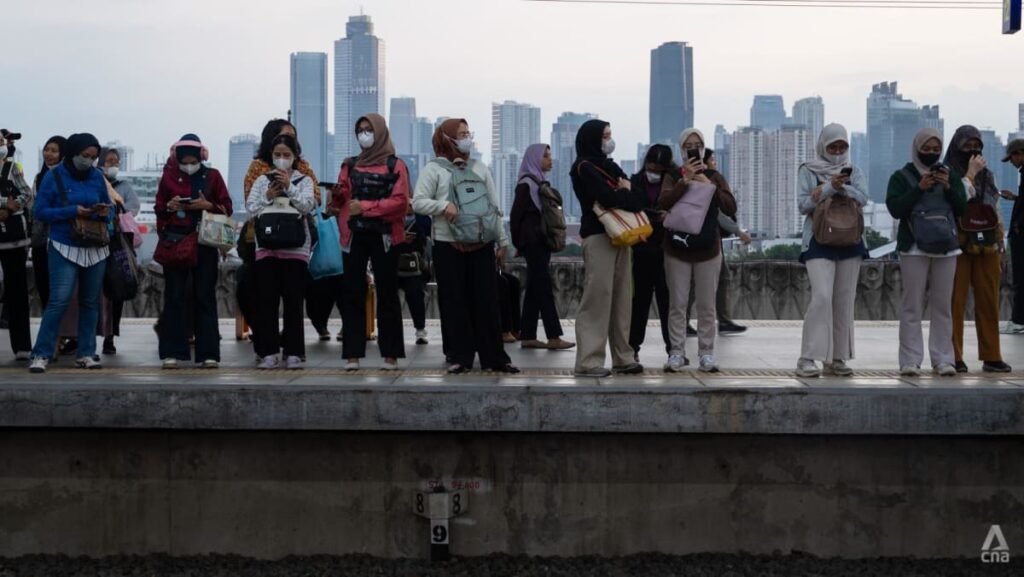The economic effects of the COVID-19 pandemic have been deeply felt in Indonesia, with many individuals like 33-year-old Mr Muhammad Yudhi facing unemployment and financial instability. After losing his job at a textile factory in 2020, Mr Yudhi turned to being a motorcycle taxi driver, but the income he makes is not enough to support his family. His monthly earnings of 2 million rupiah are barely enough to cover rent and food expenses, leading him to lament the lack of job security and benefits that come with factory work.
The number of middle-class Indonesians has seen a significant decline in recent years, according to data from the Indonesian Statistics Bureau (BPS). In 2019, there were 57.33 million middle-class individuals, but by 2024, this number had dropped to 47.85 million. Many of those who were previously considered middle-class have now been downgraded to the aspiring middle class, as their incomes no longer fall within the middle-class range defined by the BPS. This shift in demographics has impacted millions of Indonesians like Mr Yudhi, who are struggling to maintain their previous standard of living.
The aspiring middle class in Indonesia has seen an increase in numbers, from 128.85 million in 2019 to 137.5 million in 2024, making up nearly half of the country’s population. These individuals earn between 1.5 to 3.5 times the poverty line, indicating a precarious financial situation that leaves many vulnerable to economic downturns. Mr Yudhi’s family is a prime example of this, with his wife working as a part-time cleaner and their youngest son postponing his education due to financial constraints.
The decline in Indonesia’s middle class has raised concerns among experts, who warn that the country’s economy could suffer as a result of reduced purchasing power and demand for goods. Middle-class consumption accounted for a significant portion of household consumption in 2018, but by 2023, this figure had decreased, signaling a slowdown in overall household spending. Bhima Yudhistira, executive director of the Centre for Economic and Law Studies (CELIOS), has highlighted the importance of addressing the economic challenges faced by the middle and aspiring middle class to prevent further economic decline.
The impact of the dwindling middle class extends beyond individual families like Mr Yudhi’s, affecting the broader economy and potential for growth. The loss of purchasing power among middle-class consumers could lead to a decrease in demand for goods, further exacerbating economic challenges. Addressing the needs of those who have been downgraded from the middle class is crucial for sustaining economic stability and ensuring the well-being of all Indonesians. With the right policies and support, there is hope for a recovery that can uplift those who have been affected by the economic downturn.

